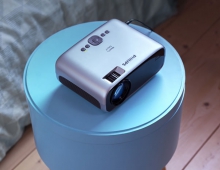
Philips Suffers From Weak European Demand Q2
Philips reported contrasting figures showing that the company suffers from weak Western European consumer demand and problems in the technology sector.
Although the company's net profits surged 60 percent, Philips said this was largely due to the sale of its shares in digital map data firm Navteq.
"We are all aware that this increase was driven by the sale of our Navteq share," Philips chairman Gerard Kleisterlee told journalists on Monday.
Operating income had dropped 59 percent to 147 million euros from 356 million euros, and sales declined 3 percent to 7.09 billion euros.
The only ray of light amid the gloomy figures was Philips' Medical Systems division which reported a 5.0 percent rise in sales to 1.498 billion euros. Operating income rose 19 percent to 157 million euros in the second quarter.
For the last two years the company has announced that it would focus more on health care which chairman Gerard Kleisterlee called Philips' "main engine of growth" last March.
Early July, Philips announced that it was taking over American radiology specialist Stentor and Kleisterlee said the company was looking for more such acquisitions.
For the company as a whole, sales declined by 3.0 percent to 7.09 billion euros from 7.28 billion euros a year ago. The fall was particularly marked in Europe, where it doubled to a 6.0-percent decline because of weak consumer demand.
The figures were in line with analysts' expectations as Kleisterlee had already warned of a possible drop in June.
The market for domestic appliances-- coffee makers, razors, electric toothbrushes-- was weak in Europe and North America and Philips warned it would stay that way in the third quarter.
The same goes for consumer electronics, like flat screen televisions and dvd-players.
"Demand in Europe (for consumer electronics) is expected to remain weak. Retail channels appear somewhat overstocked, predominantly with (inferior) brands," according to Kleisterlee.
Philips' largest division in terms of sales, Consumer Electronics dropped 1 percent in sales in the second quarter to 2.26 billion euros. In the last few years Philips put a lot of effort in restructuring the division which seemingly paid off as it still reported an operating profit of 6 million euros.
"Consumer Electronics with its current business model suffer much less on the bottom line than it would have in the previous years," the chairman said.
The stressed that the group does not foresee any "major changes in employment" or "drastic restructuring" though there will be "rigid measures" in some areas.
It is clear that Philips will continue to tighten its belt as his has already been doing as it voiced caution in its third-quarter outlook.
"In many parts of the world growth is slowing down," the company said in a statement.
"We are all aware that this increase was driven by the sale of our Navteq share," Philips chairman Gerard Kleisterlee told journalists on Monday.
Operating income had dropped 59 percent to 147 million euros from 356 million euros, and sales declined 3 percent to 7.09 billion euros.
The only ray of light amid the gloomy figures was Philips' Medical Systems division which reported a 5.0 percent rise in sales to 1.498 billion euros. Operating income rose 19 percent to 157 million euros in the second quarter.
For the last two years the company has announced that it would focus more on health care which chairman Gerard Kleisterlee called Philips' "main engine of growth" last March.
Early July, Philips announced that it was taking over American radiology specialist Stentor and Kleisterlee said the company was looking for more such acquisitions.
For the company as a whole, sales declined by 3.0 percent to 7.09 billion euros from 7.28 billion euros a year ago. The fall was particularly marked in Europe, where it doubled to a 6.0-percent decline because of weak consumer demand.
The figures were in line with analysts' expectations as Kleisterlee had already warned of a possible drop in June.
The market for domestic appliances-- coffee makers, razors, electric toothbrushes-- was weak in Europe and North America and Philips warned it would stay that way in the third quarter.
The same goes for consumer electronics, like flat screen televisions and dvd-players.
"Demand in Europe (for consumer electronics) is expected to remain weak. Retail channels appear somewhat overstocked, predominantly with (inferior) brands," according to Kleisterlee.
Philips' largest division in terms of sales, Consumer Electronics dropped 1 percent in sales in the second quarter to 2.26 billion euros. In the last few years Philips put a lot of effort in restructuring the division which seemingly paid off as it still reported an operating profit of 6 million euros.
"Consumer Electronics with its current business model suffer much less on the bottom line than it would have in the previous years," the chairman said.
The stressed that the group does not foresee any "major changes in employment" or "drastic restructuring" though there will be "rigid measures" in some areas.
It is clear that Philips will continue to tighten its belt as his has already been doing as it voiced caution in its third-quarter outlook.
"In many parts of the world growth is slowing down," the company said in a statement.


















